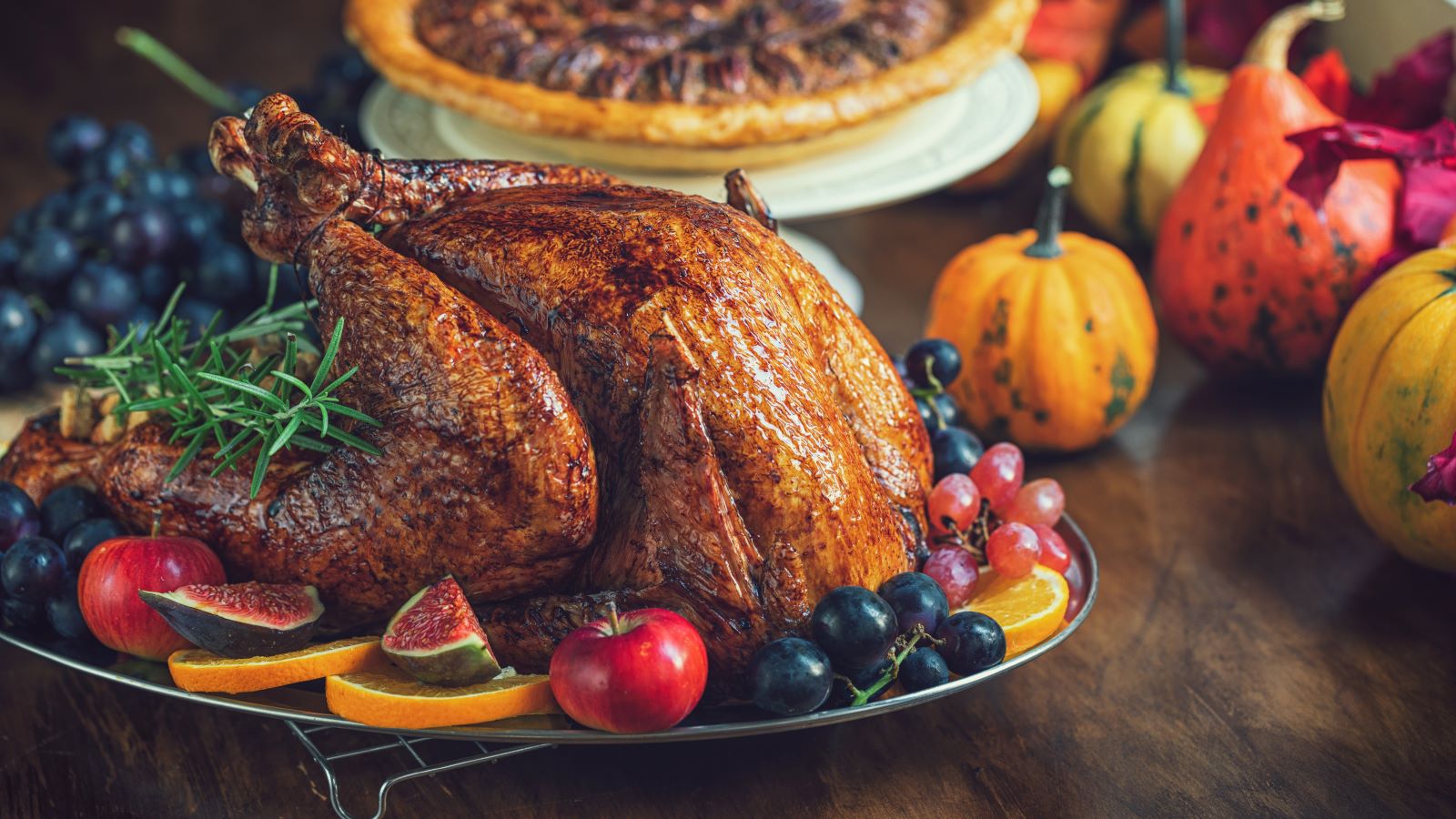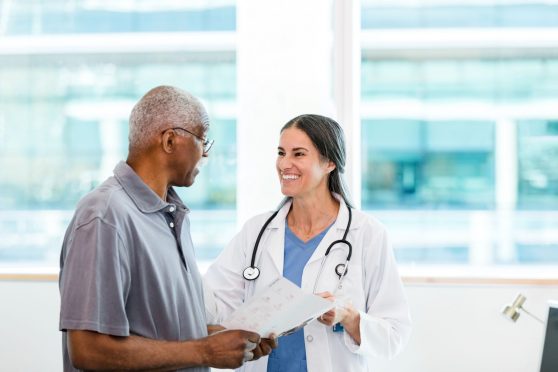Do you find yourself fighting off sleep after Thanksgiving dinner? You’re not alone. In fact, nearly 60% of Americans take a post-feast nap each year.
But what’s making you feel sleepy – is turkey the culprit, or is it the mountain of mashed potatoes and stuffing? We turned to an expert to break it down.
Find a doctor near me
Turkey contains an amino acid which can promote relaxation.
Many are quick to blame the turkey for their Thanksgiving sleepiness. And there are some facts behind turkey’s bad rap.
“Tryptophan is an amino acid found in some foods, which has been linked to drowsiness and can even be taken as a supplement to improve sleep,” says Andrew Wong, MD, a primary care provider with Hartford HealthCare in Westport.
But while tryptophan does increase your serotonin and melatonin, there isn’t enough in turkey to have a noticeable impact.
“Just because a food is considered ‘high’ in tryptophan doesn’t mean that you’ll actually consume enough to feel its effects,” says Dr. Wong. “For example, you would have to eat roughly 20 servings of turkey to ingest as much tryptophan as one supplement would contain.”
And although turkey is known for its tryptophan content, it isn’t the only food that has it. Other types of poultry are also high in tryptophan, along with other foods like cheese, yogurt, eggs and fish.
> Related: 6 Healthy Foods to Add to Your Plate This Thanksgiving
Carbs are more likely to cause a crash than turkey.
When it comes to Thanksgiving dinner, tryptophan isn’t the only thing to watch out for. In fact, your favorite starchy side dish is a more likely culprit.
“When you eat carbs, they break down into simple sugars which cause your blood sugar level to increase quickly. That causes your body to release insulin to regulate your blood sugar.”
The result? The dreaded post-Thanksgiving dinner “food coma.”
“Interestingly, turkey might actually be helping prevent this crash, not causing it,” says Dr. Wong. “By balancing your carb intake with protein and healthy fats, you can slow the digestion process and prevent a blood sugar spike in the first place.”
> Related: 5 Healthy Changes for Your Thanksgiving Dinner
Having trouble staying awake after dinner? Try this.
Tired of being the first one to fall asleep after dinner? Dr. Wong has a few tips to keep you from nodding off:
- Eat slowly. Eating slowly will slow the digestion process, making you less likely to have a spike in blood sugar – or the crash that comes after.
- Be mindful of your portions. With so much delicious food on the table, it can be easy to overeat on Thanksgiving. Be sure to start with small servings – you can always have seconds if you’re still hungry after your stomach has caught up with your eyes.
- Drink plenty of water. Drinking water helps with digestion and can help you feel more alert. Plus, it makes you less likely to overindulge in alcohol, which tends to cause drowsiness.
- Go for a walk after eating. Going for a short walk can help stimulate the stomach, which will help you digest food without a crash.
- Play games with your family. Resting on the couch after dinner is a surefire way to put yourself to sleep. Instead, try engaging in activities with family and friends to help you stay alert.
- Get plenty of rest the night before. Lastly, make sure to get plenty of sleep! If you’re tired before your meal even starts, you’ll be more likely to feel drowsy after you eat.



